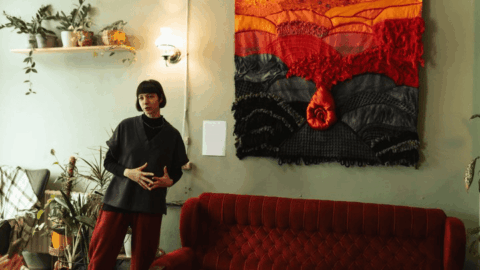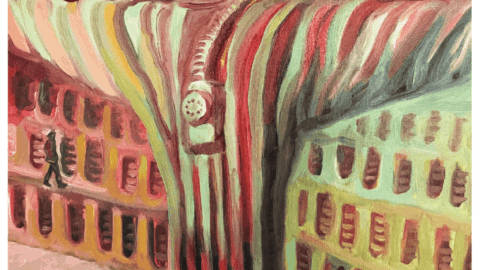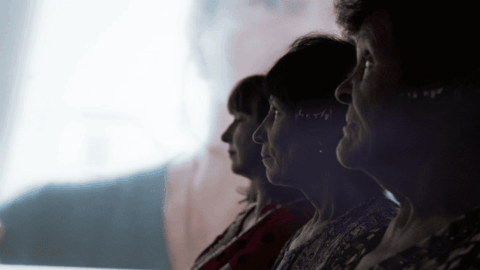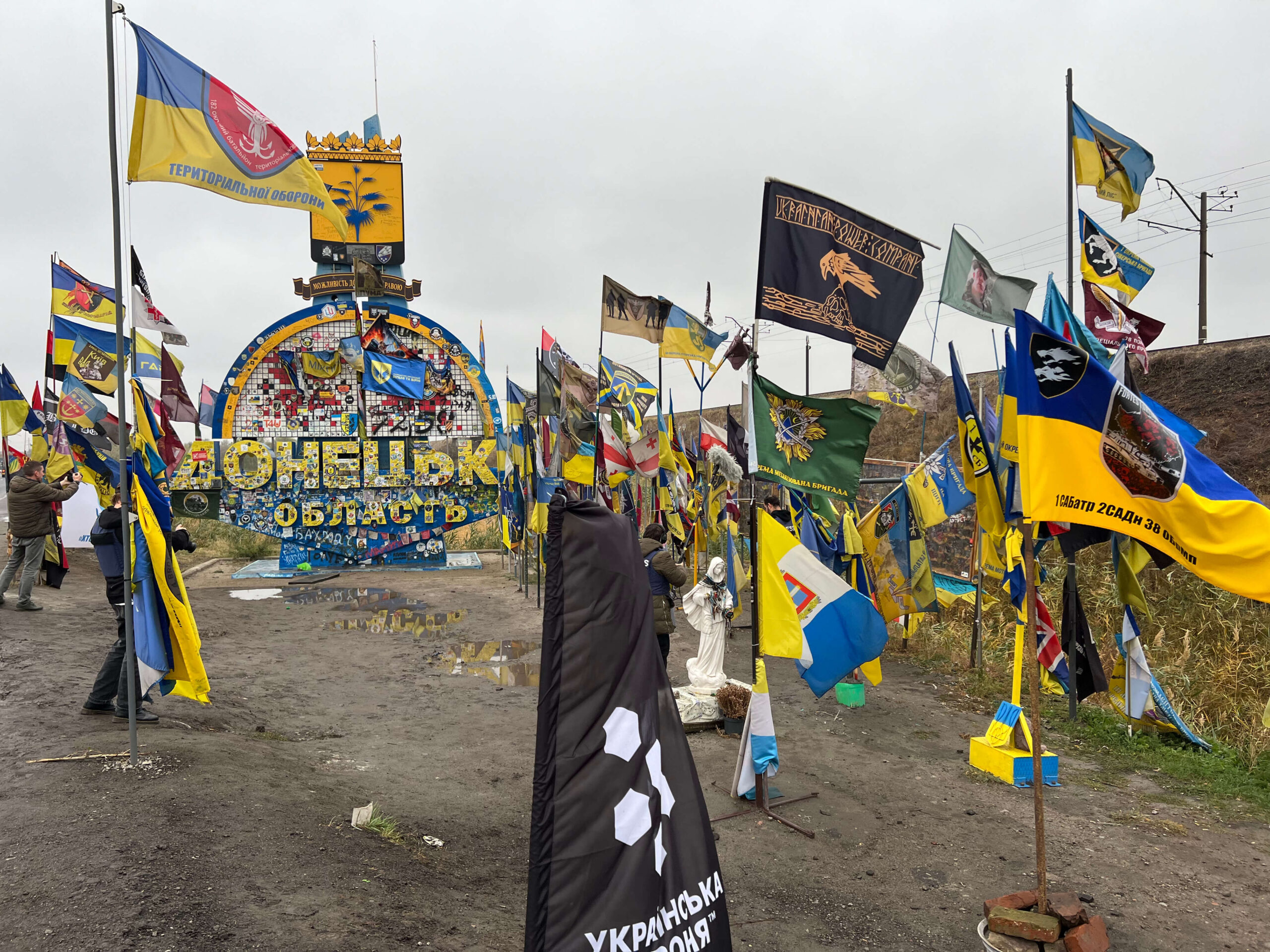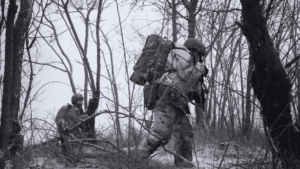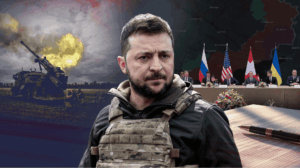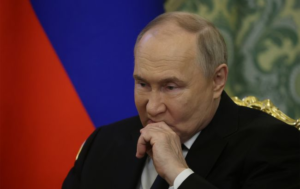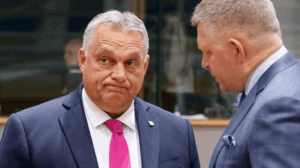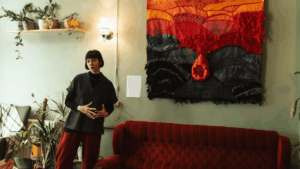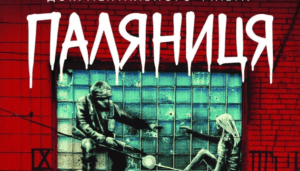Green Grey frontman Andriy “Diezel” Yatsenko has died at 55. The legendary Ukrainian band, known for 90s hits, shaped the country’s rock music scene.
Diesel, Andriy Yatsenko from Green Grey, has died. The news was reported by the organization Mastershow Event, which organized the band’s concerts.
The Green Grey tour, which was set to begin on October 24, has been canceled. It was reported by BBC News.
The cause of Diesel’s death has not been disclosed.
Director Viktor Priduvalov said it could have been heart-related issues. As OBOZ.UA found out, the same assumption was made by the frontman of TNMK, Oleh Mykhailyuta (“Fagot”).
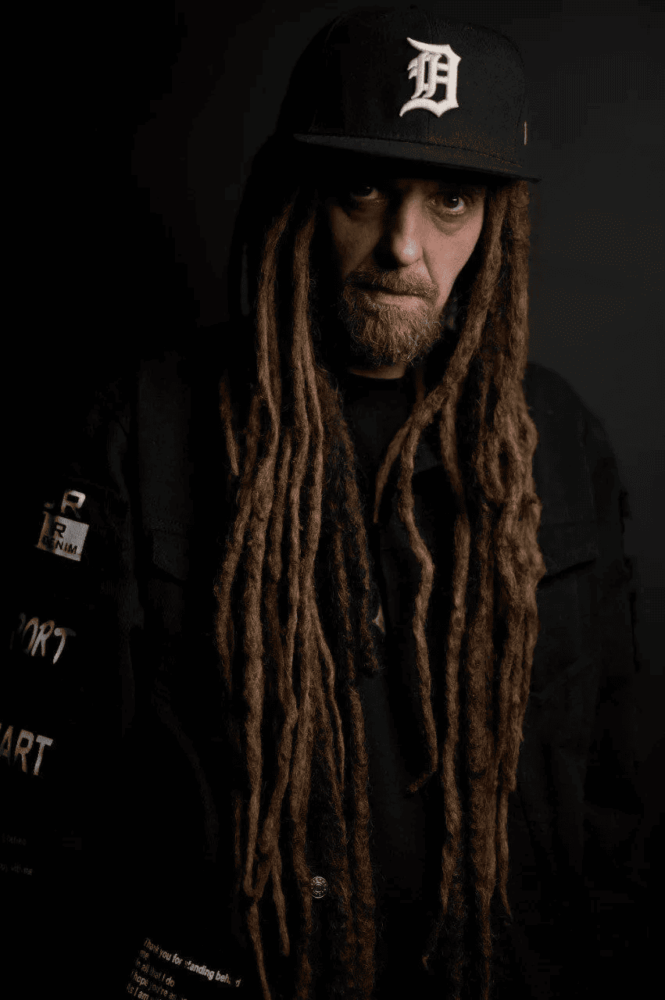
Diesel was 55 years old.
Ukrainian artists are sharing their memories of Diesel and expressing condolences.

Sviatoslav Vakarchuk, the frontman of Okean Elzy, called Diesel one of the brightest symbols of how everything began in the 1990s.
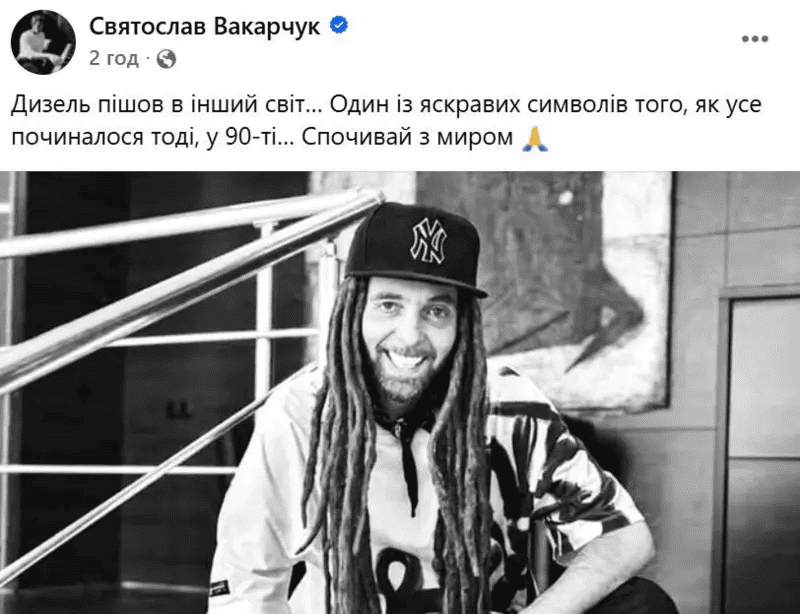
Green Grey became a symbol of progressive Ukrainian music in the late 1990s and early 2000s, says media expert Denys Putintsev. According to him, their sound was on a European scale.
Green Grey were the first in Ukraine to receive an MTV Europe Music Award — twice, in 1996 and 2009.
The band was founded in 1993 in Kyiv. Their most popular tracks include Under the Rain, Mazafaka, Emigrant, and Stereo system.
Their first major hit, Under the Rain, was named Song of the Year for two consecutive years at Kyiv’s Parade of Hit Parades.
“Oh God, how we jumped and shouted ‘Pod dozhzhiom i poydiom’… So much happiness, so much energy — I still remember it,” recalled TV host and actress Tala Kalatai about a concert at the Sports Palace in the late 1990s.
“Thank you, Andriy, for a youth filled with Green Grey’s songs, for being both down-to-earth and otherworldly at the same time,” she wrote on the day of the musician’s death.
“Green Grey marked the second wave of progressive Ukrainian music after Terytoriya A in the early 2000s,” says Putintsev.
According to him, what the band achieved during that time deserves a place in the history books of Ukrainian music — their success was incredible. They were as popular as VV, Okean Elzy, and TNMK.
“Diesel was undoubtedly a symbol of progressive Ukrainian rock music. Although their music can’t be confined to one genre — it was progressive alternative music, full of experiments,” the media expert concluded.

In 2015, Green Grey recorded a duet with Russian artist Grigory Leps, Babos to Bosses. Leps supports Vladimir Putin and Russia’s aggression.
The band often performed their songs in Russian, which led to controversies. Green Grey — one of the first rock bands of independent Ukraine — repeatedly found themselves involved in language debates. Earlier, the band supported initiatives aimed at protecting the rights of Russian-speaking artists, which often drew criticism.

In 2021, Andriy Yatsenko said they were denied participation in a concert celebrating the 30th anniversary of Independence Day because they performed songs in Russian. The musician was outraged at the time and posted an angry message on social media, which he later deleted.
After the full-scale Russian invasion began, Green Grey stopped performing their Russian-language hits.
The musicians began translating their songs from Russian into Ukrainian and English.
In November 2023, the band also announced a tour in support of Special Operations Forces soldier Stanislav Zoriya and declared a full transition to Ukrainian in their concert program. However, despite Andriy Yatsenko’s pro-Ukrainian stance in recent years, he did not switch to speaking Ukrainian personally. He did not explain why. In an interview with Podcast 4:19, he said that the band members had become enthusiastic about translating old songs, but this ultimately caused some discomfort at concerts.
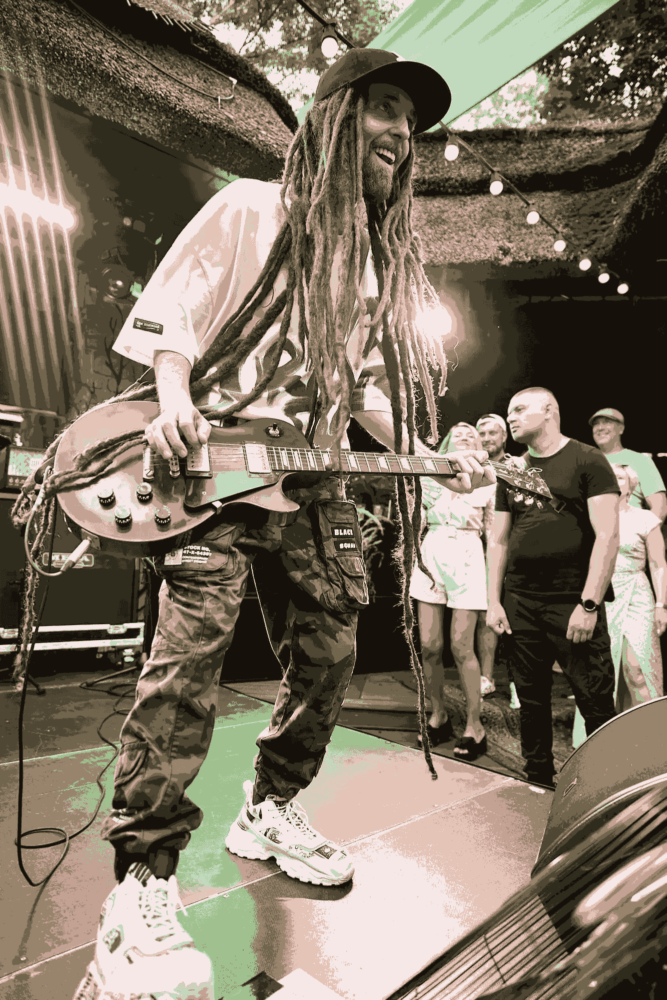
“Now it’s hard to sing along at Green Grey concerts. And that used to be our thing — even children who never knew us would come with their parents and sing all the songs from start to finish. Now it’s difficult to listen to Green Grey, because as a listener, you want to sing along to the words you know, but they’re different. On the other hand, sooner or later, you’ll learn to sing along in Ukrainian,” Diesel commented.
At the beginning of the full-scale invasion, Yatsenko was engaged in volunteering — organizing evacuations, helping families find housing, and later he went to the military enlistment office and signed a contract. In the Territorial Defense battalion Mriya, he worked in air, missile, and anti-drone defense systems: he stood guard at positions and, when off duty, continued his work in music and volunteer support.

The musician also held charity auctions — among the lots were an apartment in Kyiv and other valuable items, and he created an NFT collection (a special type of cryptocurrency) to support the battalion.
“I hadn’t really held a weapon before. Later, when I became a rastaman, I thought I was a hippie and would never touch a weapon again, that pacifism is a religion, so never and for nothing. But you see, one day changed almost everything,” he said in a 2023 interview with NV.
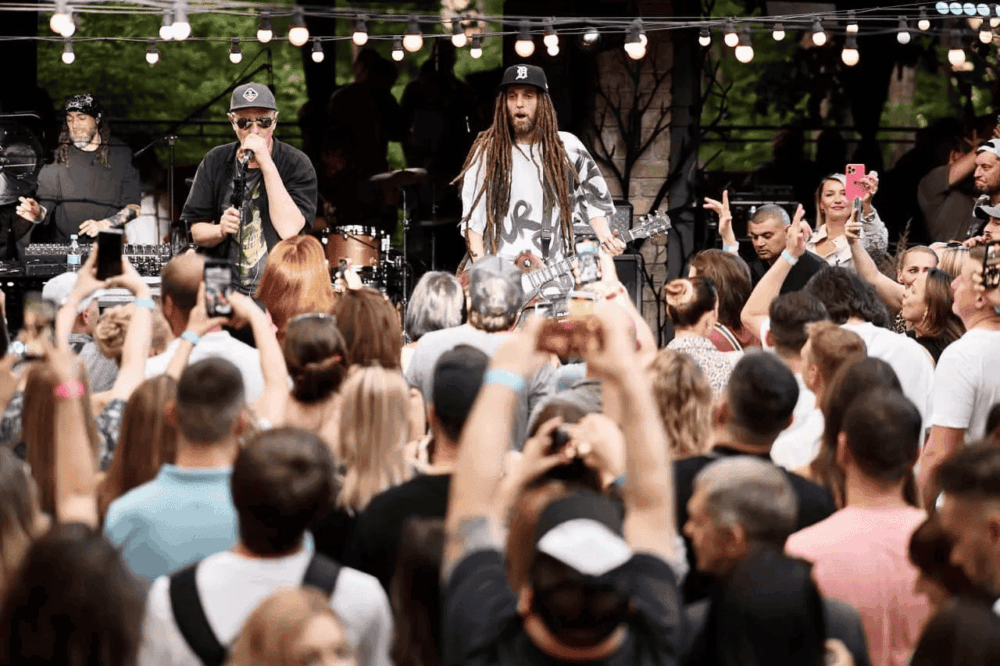
In 2024, Green Grey released a music video for the song Druzhe. They dedicated the song to a friend who died while evacuating people from Kyiv Oblast in March 2022.
“They inspired me with their positivity. I wore out the Metamorphosis album on my cassette player. I’m very proud of them for translating their songs,” wrote a fan under the nickname Umka.
“The first song we translated was Emigrant. And we realized that, in principle, we could change the band’s language. In some parts, the songs actually sound better in Ukrainian than in Russian,” Diesel said in a 2023 interview with NV.UA.
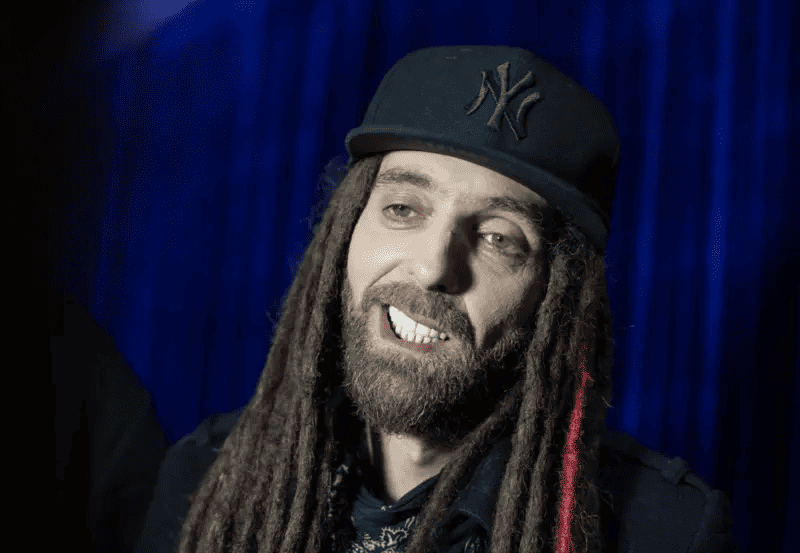
“I’ll remember your advice, our studio jams and the ones outside. You made a huge contribution to the development of Ukrainian music and will remain in people’s memories and playlists,” shared singer Artem Pyvovarov, posting a performance with Diesel in Mariupol in 2018.
In 2025, Green Grey reworked one of their early songs about Moscow — a track from their 2000 album — into a new version titled Gorít Moskva (“Moscow is Burning”). Andriy Yusov, spokesperson for Ukraine’s Main Intelligence Directorate, even thanked the band for this work, sharing a video of the song created using artificial intelligence.
Tags: 90s rock icons Andriy Yatsenko Diezel tribute EMPR.media funeral Kyiv Green Grey legend Ukraine music history


![Volodymyr Zelenskyy and First Lady Olena Zelenska placing candles at the Alley of the Heavenly Hundred memorial in Kyiv to honor fallen Revolution of Dignity heroes. :contentReference[oaicite:2]{index=2}](https://empr.media/wp-content/uploads/2026/02/flags-480x270.png)
